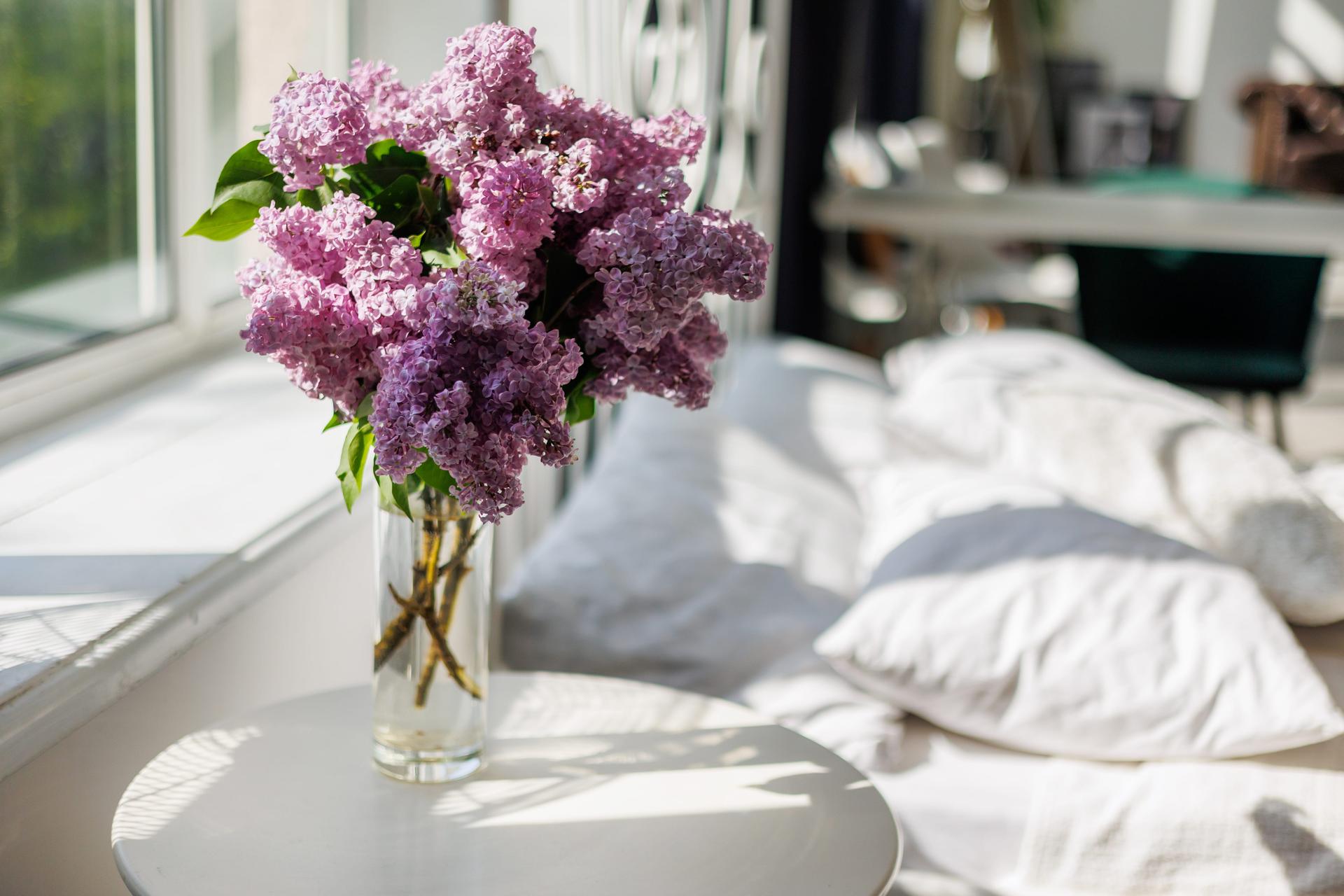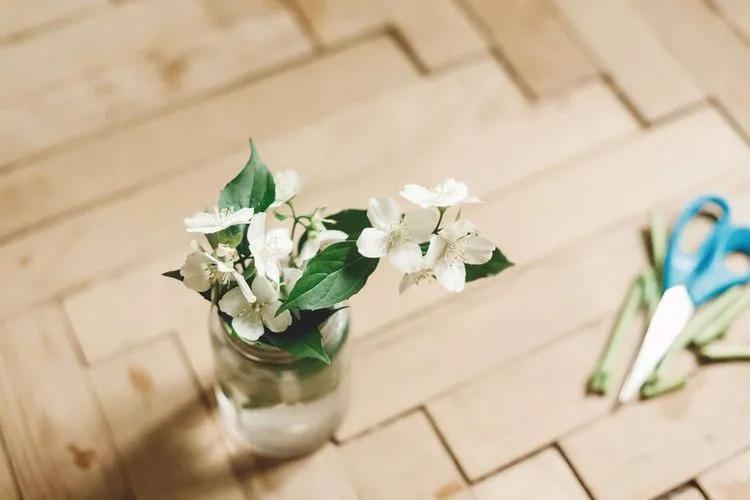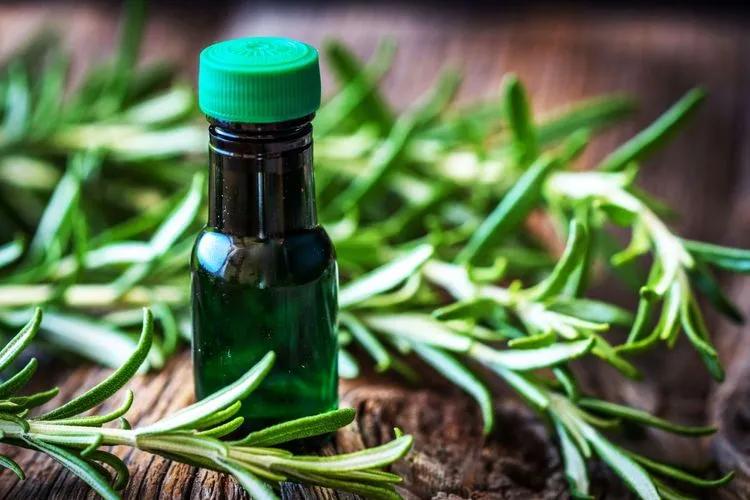They sing silent lullabies and set a calming atmosphere, but they stand still next to your bedroom. Guess what? We’re talking about plants that help you sleep! After a tiresome day, sleeping is the best luxury you can have to recharge your depleted energy and get ready to face the next day—and your houseplants can help you with that. If you are curious to know who these sleep-inducing buddies are, we invite you to keep scrolling below!

Is it Safe to Sleep with Plants in the Bedroom?
Plants that help sleep quality are completely safe. While they emit fragrant smells, which might be a nuisance for someone with allergies, these are not a point to worry about. In fact, many of these plant-derived chemicals are extracted as essential oils for the cosmetic industry and other pharmaceutical use.
Benefits of House Plants in the Bedroom
Sleep plants are claimed to offer a multitude of benefits which is relevant to home and lifestyle, such as the following:
- The fragrance pumped into the air from some scented flowers like lavender, gardenias, and jasmine has been proven to relieve stress and help us get some shut-eye.
- The mere presence of plants is advantageous to one's mood and health thanks to their blood pressure-lowering, pain-relieving, and soothing effects, according to a peer-reviewed study.
- As plants release water vapor as a by-product of transpiration, they can maintain the nose and throat mucous membrane moist during bedtime. This sticky barrier is what prevents you from getting viral or bacterial flu!
- The negative ions released by some plants can help bring down harmful pathogens as they bind with them. While microbes are always present in the air, this benefit can help reduce the chances of catching a viral cold or allergens.
- Some studies have shown its active absorption of carcinogenic compounds in the air, although it is still highly debated by many scientists.

List of Plants that Help Sleep Better
Say goodbye to sleep-deprived nights with these plants that put you to sleep instantly!
Lavender
Plant’s Effect: Among the most extensively studied aromatic plants, lavender has been proven to boost nap quality according to various trials. Clinical patients who respired through a gas supply chamber with lavender scent scored lower anxiety levels and higher cognitive responsiveness after deep sleep.
Sunlight requirements: Hailing from the sunny Mediterranean, this purple plant needs bright rooms in order to bloom properly. A big window illuminated with direct solar light is the best spot for lavenders.
Toxicity for humans, pets: Yes
Smell: Yes

Jasmine
Plant's Effect: Jasmine is one of the flowers that make you sleepy. As demonstrated in clinical studies, compared to lavender, this white-petalled trailing flower has slightly superior effects on someone's anxiety relief and sleep improvement. It is also used in aromatherapy sessions, which is basically done by exposure to these aromatic compounds combined with a relaxing massage.
Sunlight requirements: Jasmines are quite tolerant with partial shade, however, this does not mean they do well in this area! To enjoy its sweet-smelling flowers, it should sit next to a window all day-drenched in bright sunlight.
Toxicity for humans, pets: No
Smell: Yes

Rosemary
Plant’s Effect: Similar to its cousin lavender, rosemary is also equipped with a relaxing smell in its leaves. This discharged scent, mainly composed of monoterpenes, is slowly circulated through the room, which then calms the mood and aids in sleep disorders of anyone in the bedroom. Although its exact role in treating insomnia is yet to be elucidated by medical research, this initial observation on cutting restless sleeping is still worth trying at home!
Sunlight requirements: Another southern European native, this fragrant herb also needs bright solar illumination. Growing it in a shady room corner, devoid of direct sunshine, may reduce its photosynthetic activity, consequently slowing down the growth of aromatic leaves.
Toxicity for humans, pets: Yes
Smell: Yes

Sansevieria
Plant’s Effect: Similar to its cousin lavender, rosemary also has a relaxing smell in its leaves. This discharged scent, mainly composed of monoterpenes, is slowly circulated through the room, which then calms the mood and aids with the sleep disorders of anyone in the bedroom. Although its exact role in treating insomnia is yet to be elucidated by medical research, this initial observation on cutting restless sleeping is still worth trying at home!
Sunlight requirements: Another southern European native, this fragrant herb also needs bright solar illumination. Growing it in a shady room corner, devoid of direct sunshine, may reduce its photosynthetic activity, consequently slowing down the growth of aromatic leaves.
Toxicity for humans, pets: Yes
Smell: Yes

English Ivy
Plant’s Effect: English Ivy is a trailing plant believed to clean the spore-filled air and may boost the respiratory functions of asthmatic patients, according to a study. While the end results may not be similar to plants that are just put on display, another study conducted by NASA found that it can also function as a natural filter, removing air impurities in the room. Like snake plants, English ivy promotes better sleep by expelling fresh oxygen into the room!
Sunlight requirements: English ivies tolerate shady conditions well. In the wild, they belong to the group of understory herbs, growing mainly on the forest floor. Whether you decide to grow it close to the window or closer to your bed, you won’t have much problem!
Toxicity for humans, pets: Yes
Smell: No

Gardenia
Plant’s Effect: Gardenias, one of the perfumy plants that help sleep improve, has been demonstrated in many trials to cut down sleep deprivation. Extracted from the flowers, crocetin is a carotenoid compound, similar to the class of orange pigments in carrots, that accounts for better night zizz. There is still little scientific evidence connecting the sole placement of gardenias and quality night resting, but its calming scent when in bloom wouldn’t disappoint you!
Sunlight requirements: Gardenias prefer bright, intense morning sunlight. To provide the perfect partial solar exposure, east-facing windows are the best for this white-blooming plant.
Toxicity for humans, pets: Yes
Smell: Yes

Valerian
Plant's Effect: A lovely pinkish-white flower, Valerian extracts also show promising benefits to prevent sleepless nights. A meta-analysis of various studies strengthened the claims that the extracts from the rhizomes and roots of this perennial plant are an excellent alternative to reduce anxiety that blocks drowsiness. If you wonder why, it's all due to valerenic acid, which binds to GABA receptors - a messenger in the nervous system that regulates mood, and therefore helps promote relaxation. However, it is still a subject in research to establish a direct link between sleep quality increment when planted in your bedroom.
Sunlight requirements: The flowering herb is best grown in parts with direct sunshine where it can produce flowers and develop chunky rhizomes. It can tolerate some shady spaces, but it may look a bit floppy and thin.
Toxicity for humans, pets: Yes
Smell: Yes, but mild

Caring Tips
Sleep-inducing plants, when established, will only require little maintenance. But before putting yourself in a relaxed mode, here are some tips that will help them thrive:
- Place the sun-requiring plants like lavender, rosemaries, and valerian as close to the window as possible if you do not have a bright window. Add grow lights if possible.
- Ensure that the plants are planted in humus-rich soil containing mixed media like compost or coco peat to ensure good drainage. Talking about drainage, don’t forget to have pots with bottom holes!
- Trim the trailing cultivars like English ivy and jasmine when overgrown. Additionally, plant ladders or poles will also help them climb to find good light.
- It may sound like a basic task, but do not forget to water your plants appropriately! Sansevieria, rosemary, and lavender will need less water when established.
FAQ
Is It Harmful to Sleep With Plants?
Plants are gentle creatures that should not bring any hazards. As a matter of fact, some plants are able to make you sleepy by improving air quality and inducing sleep with the diffused scent.
Are There Any Plants That Release Oxygen at Night?
Yes! Certain houseplants release oxygen at night thanks to a special process called CAM photosynthesis. Popular options include snake plants, orchids, aloe vera, and Christmas cactus. These plants take in carbon dioxide at night and release oxygen.
Do Snake Plants Help You Sleep?
Snake plants help you sleep indirectly by filtering the air and increasing the oxygen levels in your room. As shown in various studies, a high oxygen concentration cuts the erratic sleeping pattern at night.
What Fragrant Plants Help Us Sleep?
If you are considering fragrant plants to grow in your room that induce sleepiness, rosemaries, lavenders, jasmines, and gardenias are your best choices. Their sweet scent is backed up by scientific studies to aid a good rest.
How Many Plants Do We Need to Purify a Bedroom?
The purifying capacity highly varies between the room area, the plant species, and the number of leaves, but you will definitely need a lot! In an average-sized room with 320 square feet (30 square meters), 3200 plants are required.
